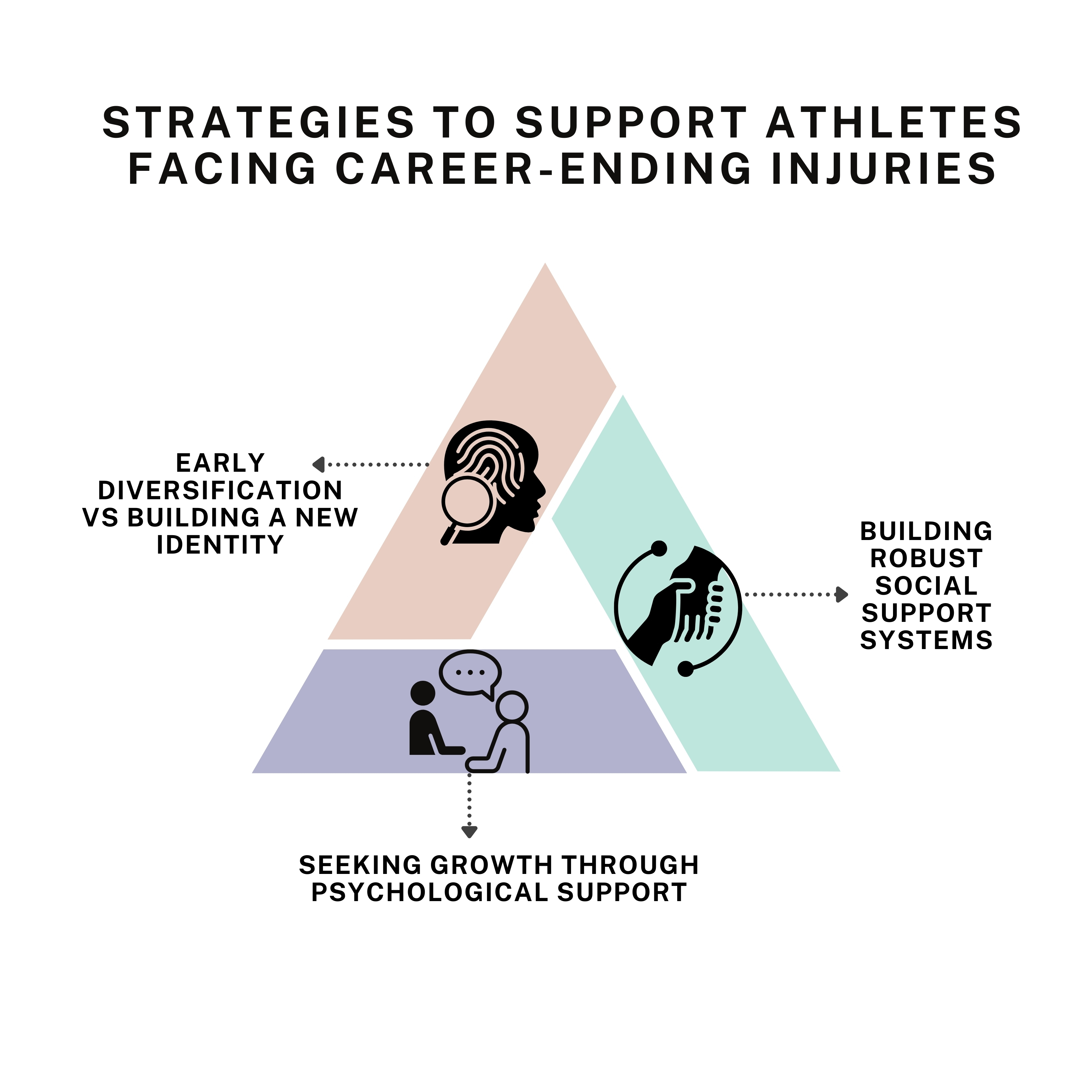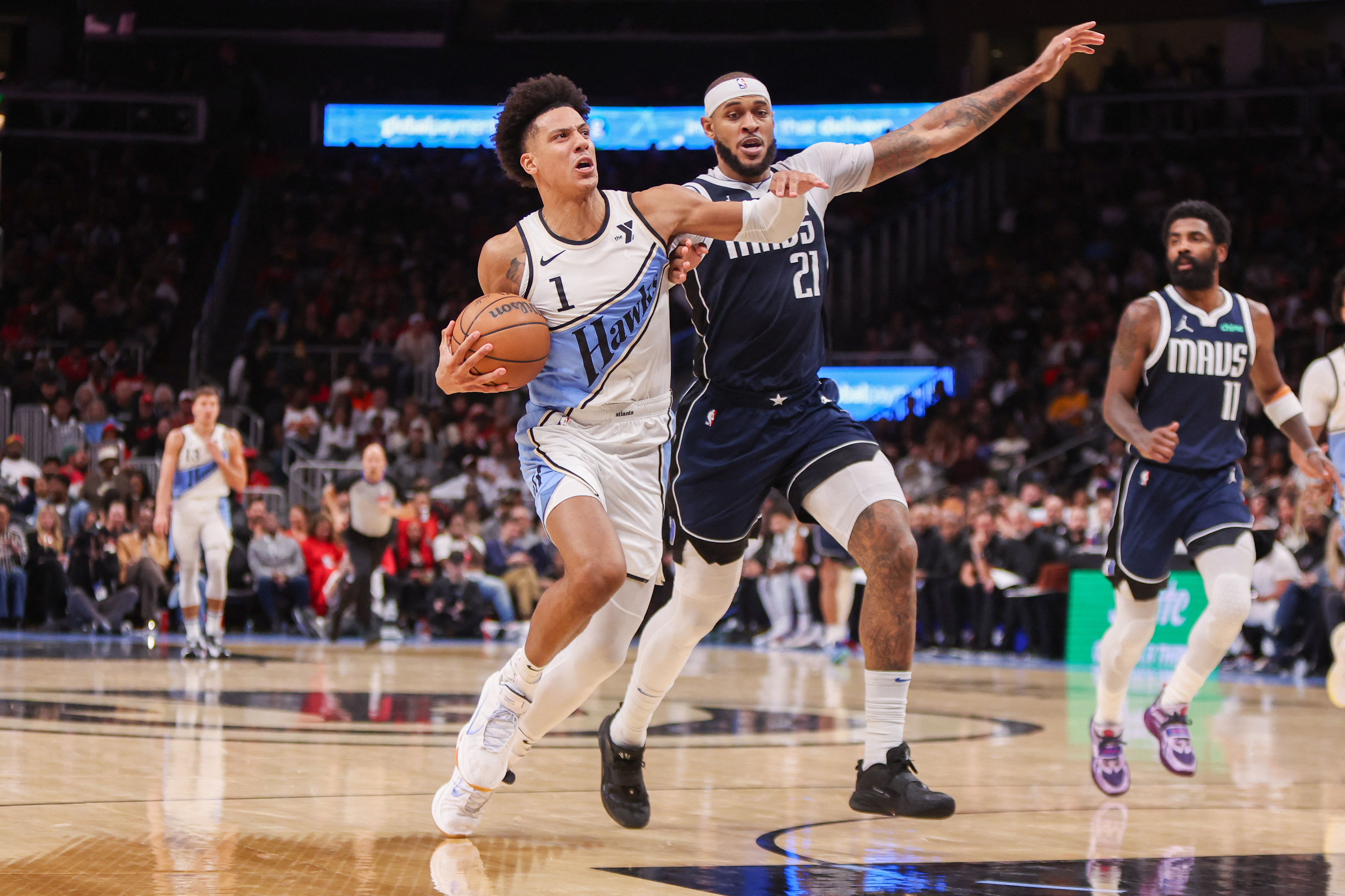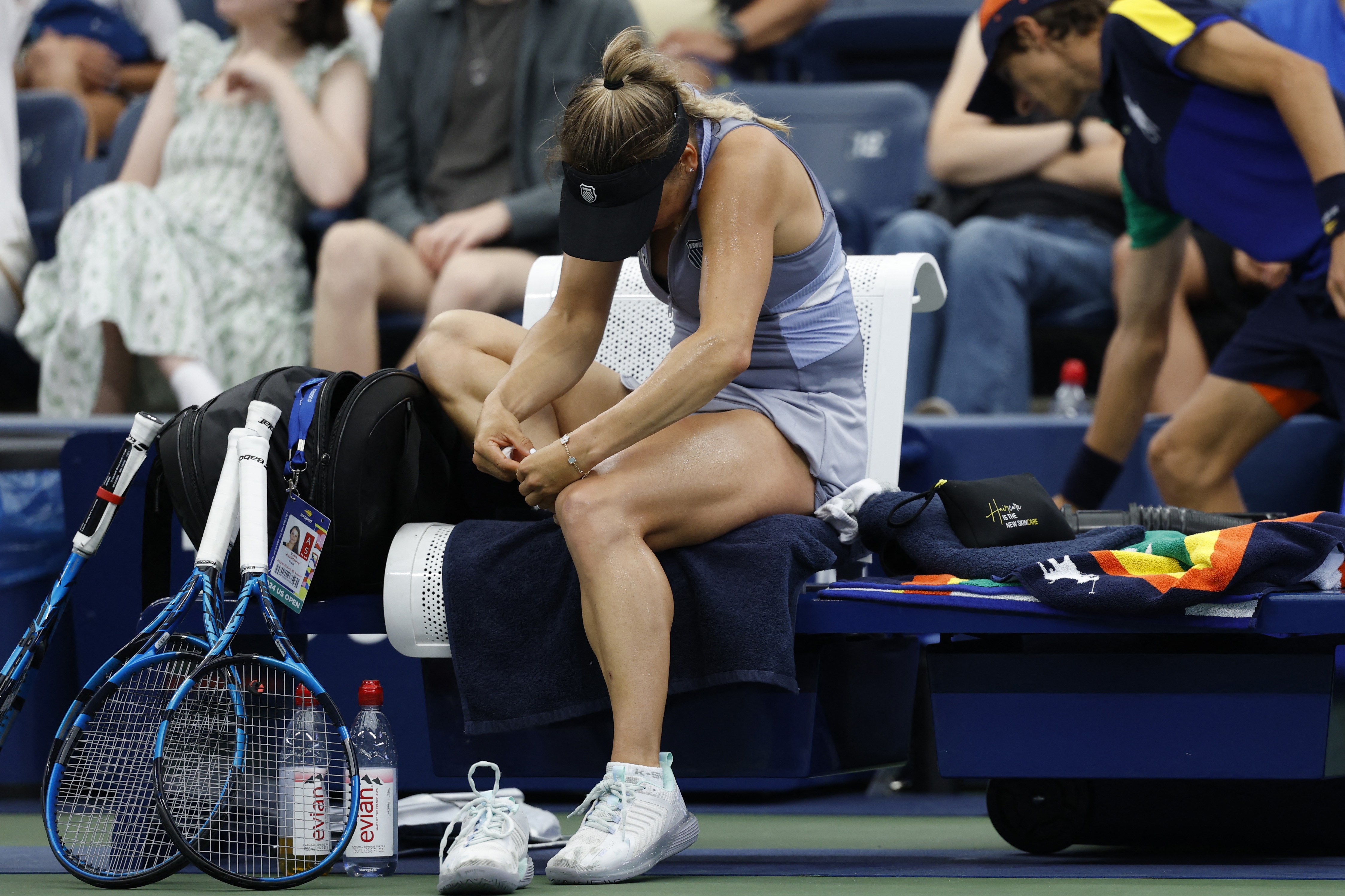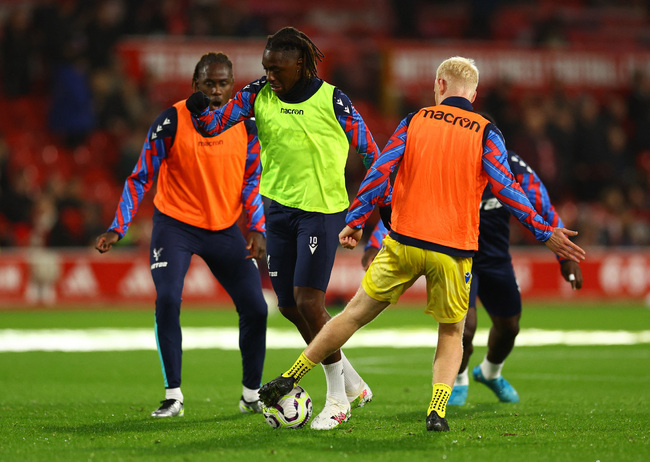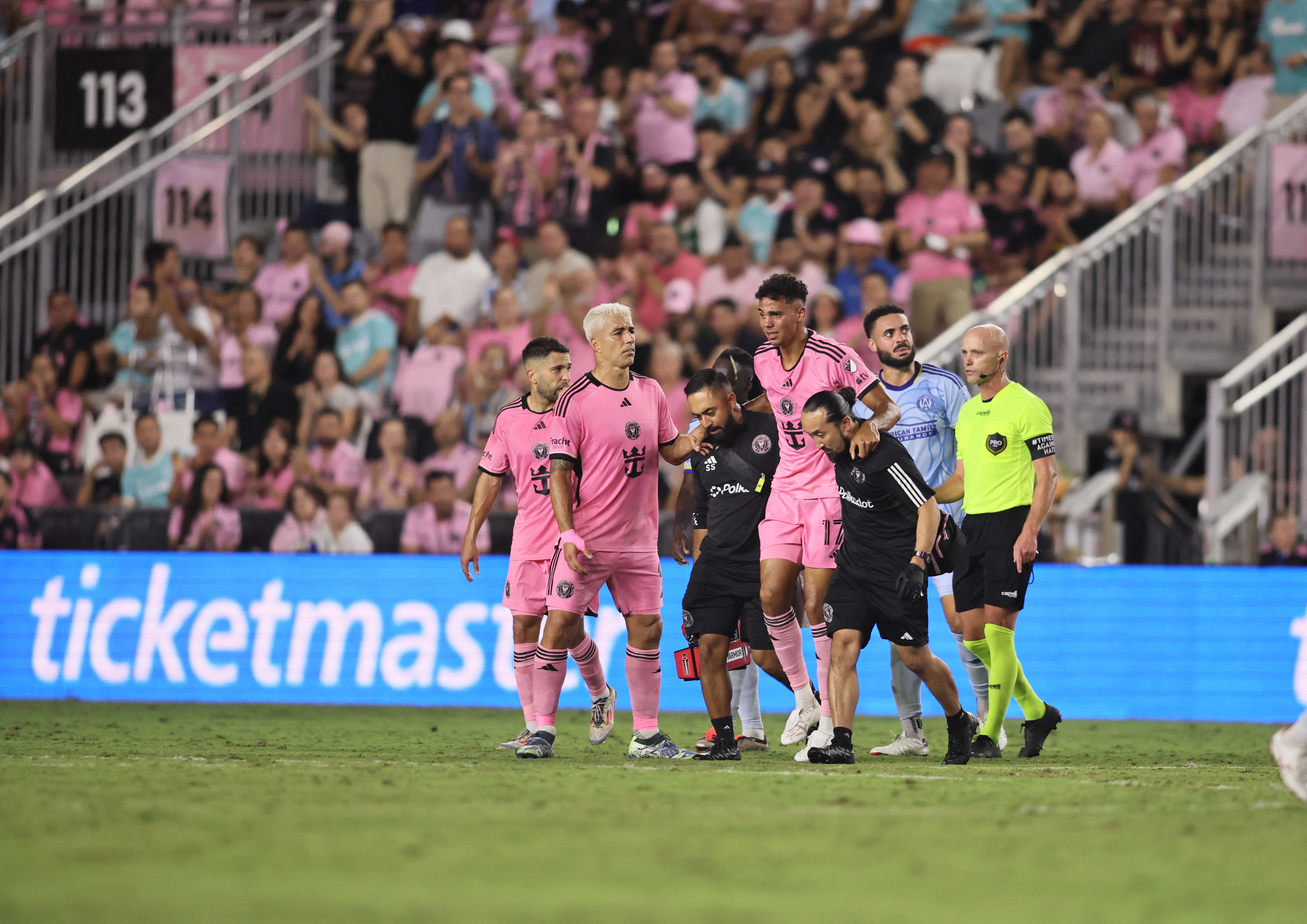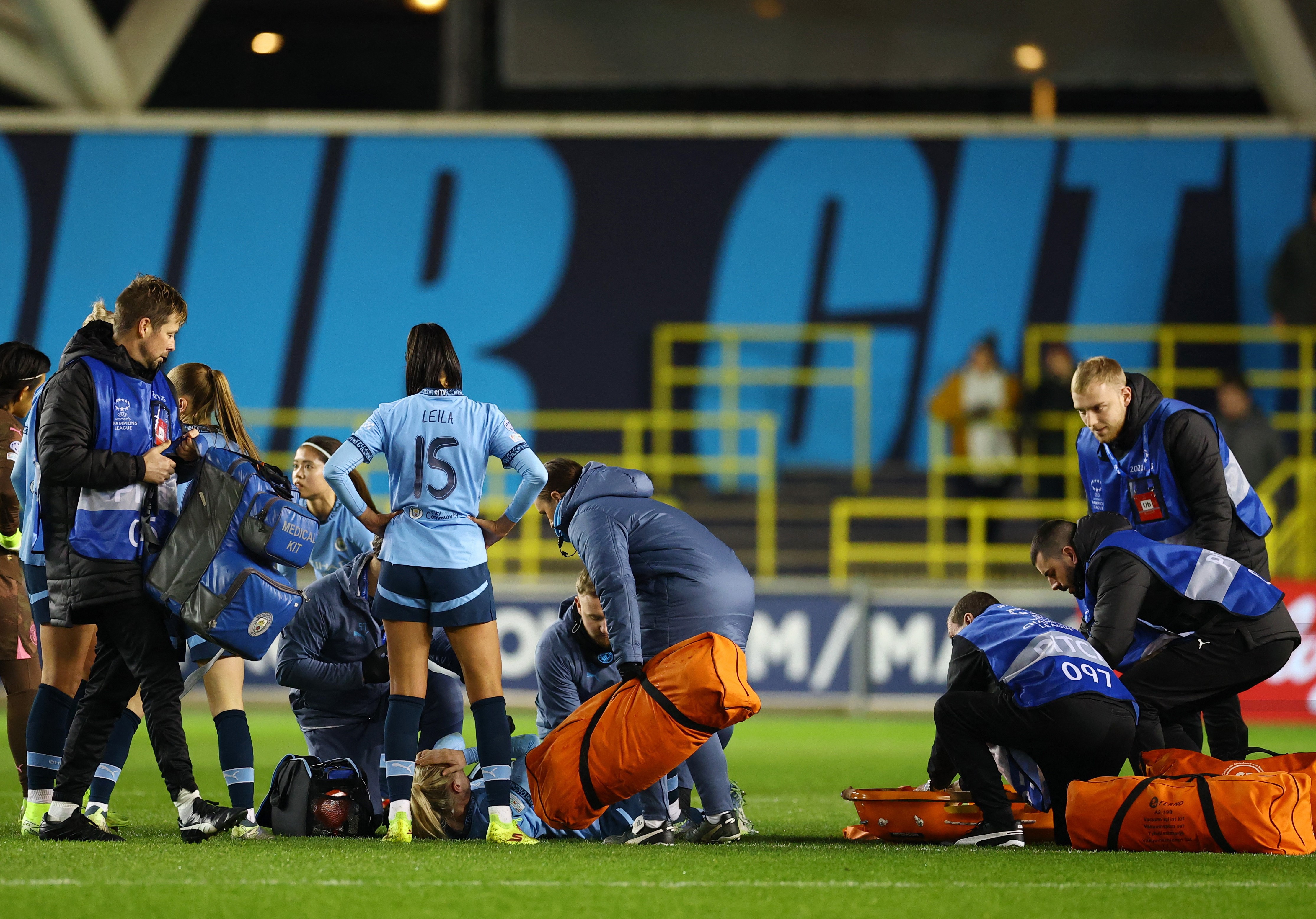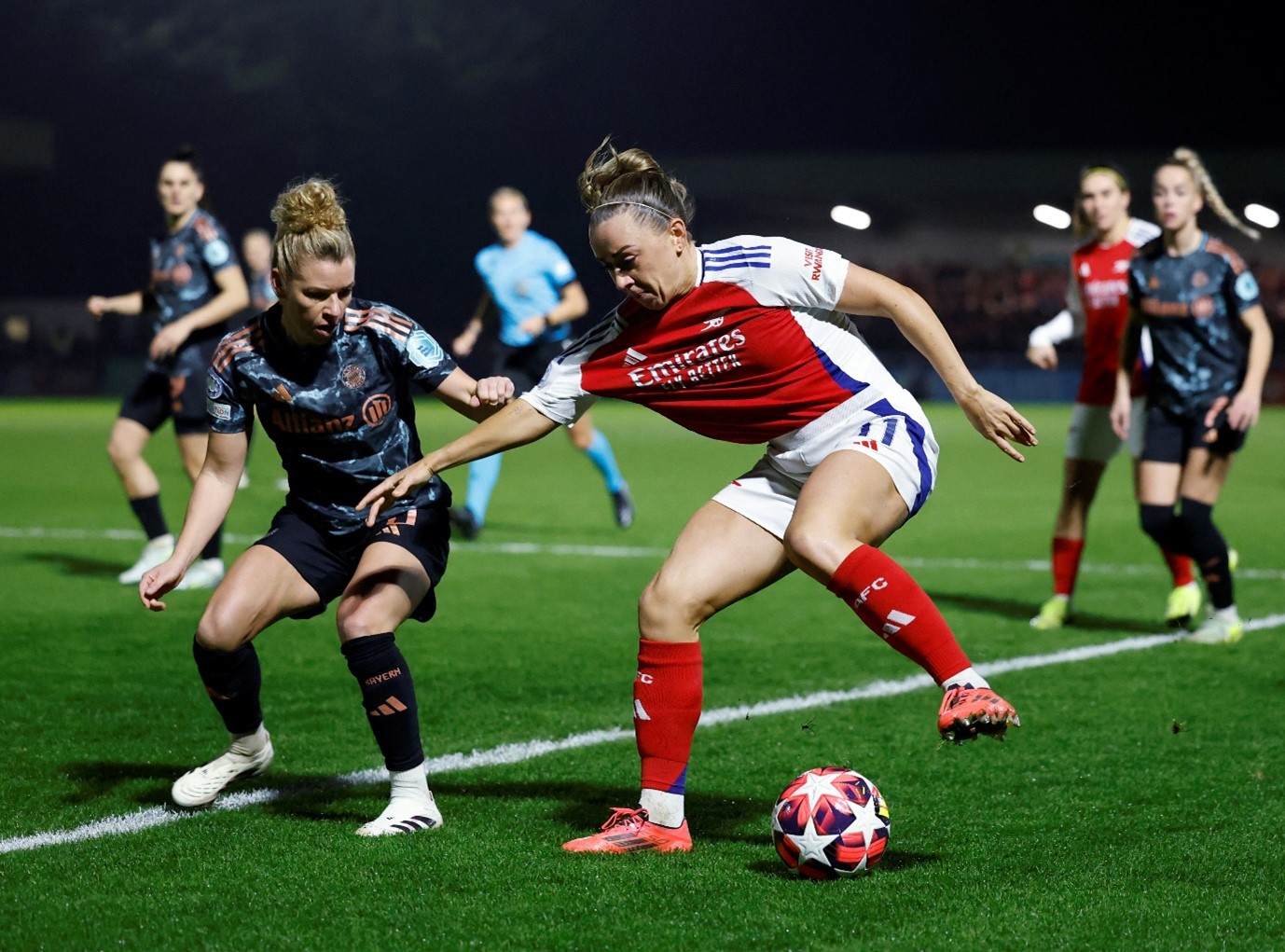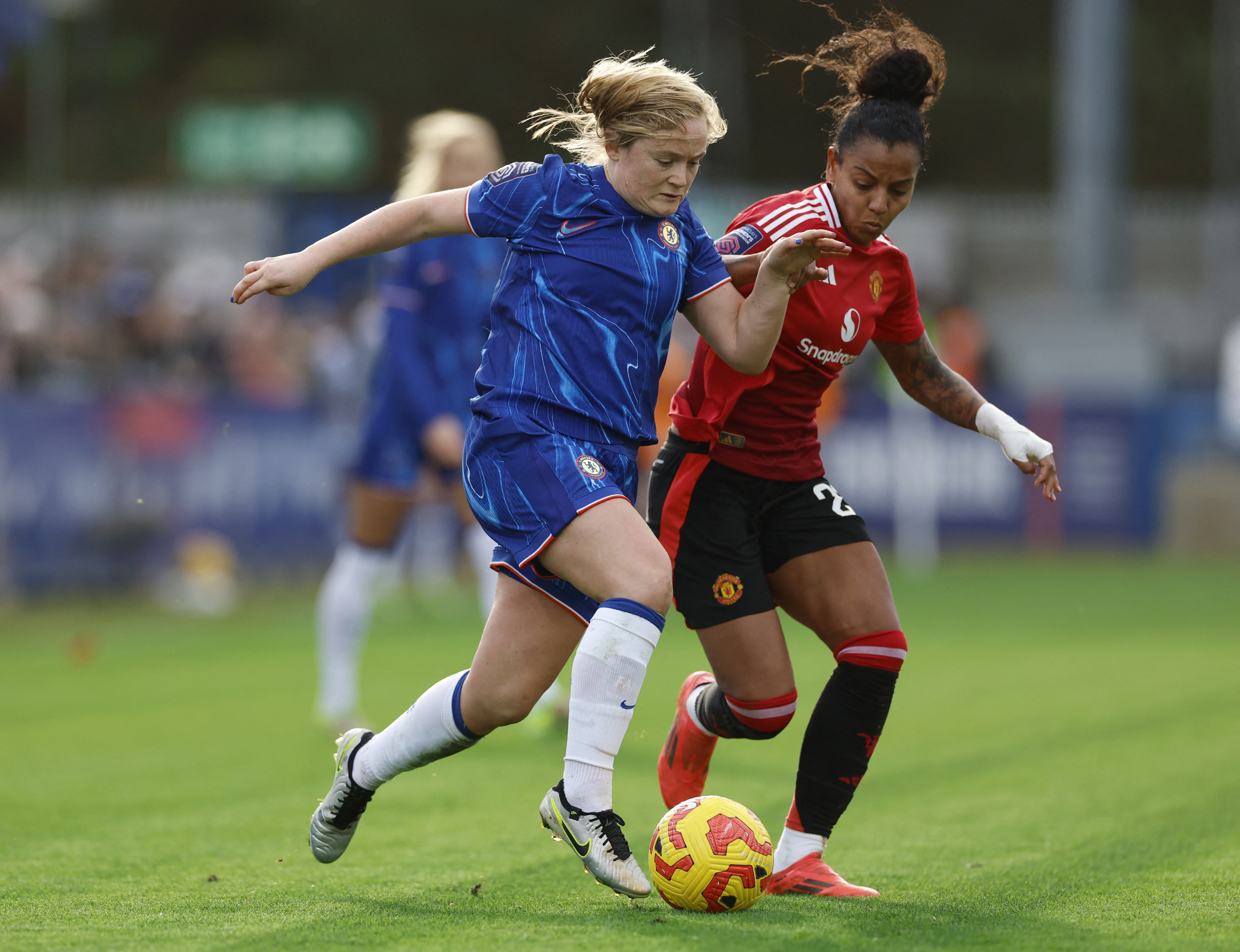You are viewing 1 of your 1 free articles
Navigating Career-Ending Injuries
Career-ending injuries challenge an athlete’s identity. Carl Bescoby explores strategies for supporting individuals with career-ending injuries through early identity diversification, building robust social support systems, and engaging in professional psychology support.
Washington Commanders wide receiver Terry McLaurin catches a pass for a touchdown against Cincinnati Bengals cornerback Dax Hill in the second half at Paycor Stadium. Mandatory Credit: Katie Stratman-Imagn Images
Career-ending injuries present a significant psychological challenge for athletes, often stripping them of a deeply rooted identity tied to their sport. Being an athlete shapes not only individuals’ professional lives but also their self-concept and social status. Athletes face emotional turmoil when injury forces an abrupt end to this identity, marked by a deep sense of loss. This transition can lead to psychological distress, such as depression and anxiety, and this can be exacerbated by a lack of preparation for life after sport. Clinicians play a critical role in helping athletes navigate career-ending transitions. By fostering resilience, supporting identity reconstruction, and encouraging the development of social support networks, clinicians can play a role in athletes developing their sense of self beyond their athletic identity.
Identity Formation
For athletes, sports are not just a career but a core aspect of their identity. From a young age, many athletes develop a self-concept that revolves around their sport, often dedicating their entire lives to it(1,2). This deep psychological investment means that when a career is cut short, it can feel like a fundamental part of one’s identity has been erased(3). Athletes often define themselves through their achievements, roles, and the recognition they receive, making the loss of their career particularly devastating. Society often views athletes as models of physical excellence and success. This external validation further intertwines their identity with their sport, and individuals often rely on it to support their sense of self and identity. When an athlete’s career ends, they may also lose status and recognition, compounding their psychological distress(4). These individuals have fewer opportunities to receive feedback to confirm who they are. Understanding how identity forms and is disrupted through retirement or career-ending injuries is important for clinicians, as it frames the athlete’s experience and the broader impact of their injury. While identity loss is a large part of the disruption for athletes when retiring from sport through injury, it is the psychological impact of this loss that deserves more attention. Clinicians must recognize their educative responsibilities and assist injured athletes in addressing issues of identity loss(3).
The Psychological Impact
The initial emotional response to a career-ending injury often involves shock, denial, and deep grief as athletes grapple with the sudden loss of their athletic identity and future potential. This can significantly hinder their engagement in recovery processes, delaying both physical and emotional healing. Compared to those who retire voluntarily, athletes forced to retire due to injury are more prone to experiencing psychological distress, depression, sleep disturbances, and unhealthy behaviors, such as poor nutritional choices. They also report a lower quality of life and diminished overall life satisfaction(5-7). One of the contributing factors to this heightened distress is the lack of preparation for life after sports. Athletes who are unexpectedly forced into retirement may not have had the opportunity to plan for the transition(7). Many athletes are encouraged to fully invest in their sports during their careers, receiving praise for their dedication and commitment, but often at the expense of cultivating a sense of self outside their athletic identity. As time progresses following a career-ending injury, the emotional challenges can deepen. What may begin as initial grief and shock can evolve into more persistent psychological issues, such as depression and anxiety(7-9). This underscores the importance of providing immediate and long-term psychological support to athletes facing the end of their careers due to injury.
Strategies to Support Athletes
While early in their careers, athletes may benefit from developing diverse interests and pursuits outside their sport to support the eventual transition. However, this is not always feasible, given the demands of specialization in elite performance and the pursuit of excellence at all costs. Therefore, clinicians must guide athletes through the identity shift when diversification hasn’t been fully achieved. This process involves helping athletes explore new passions, set achievable goals, and construct a new life narrative where sport is just one chapter (see figure 1).
“Clinicians must recognize their educative responsibilities and assist injured athletes in addressing issues of identity loss.”
Identity Building vs. Early Diversification
Many athletes are often overly invested in their sports identity, leaving them vulnerable when facing an unexpected retirement. Clinicians should work with athletes early in their careers to foster a diversified sense of self by encouraging interests beyond their sport. Athletes should be encouraged to explore personal interests throughout their careers, not just after an injury. Building a robust sense of self outside of athletic performance helps athletes become more adaptable and psychologically prepared for post-sport life. By diversifying their identity early, athletes can mitigate the emotional impact of a career-ending injury, feeling more confident about their abilities to succeed outside of sport(10).
“They also report a lower quality of life and diminished overall life satisfaction.”
It may not always be possible for athletes to spend time diversifying their identities throughout their careers. Often, early specialization is warranted or expected in elite-level performance. As such, clinicians can play a critical role in helping athletes redefine their identity beyond their sport. The process involves exploring new interests, setting new goals, and helping them create a new story. Firstly, encouraging athletes to investigate passions outside of sports can significantly benefit them. This can involve hobbies, education, or vocational interests they may have neglected during their athletic career. Second, clinicians can help individuals set new, meaningful, achievable goals that provide purpose outside of their athletic achievements and can offer a sense of progress(10,11). This may allow individuals to maintain a sense of direction during the disruption. Third, a useful approach would be to help athletes create a new life story by holding space for individuals to construct and integrate their past successes into a broader understanding of self, where sport is a chapter rather than the entire story.
Social Support Systems
The role of social support in an athlete’s recovery process is essential. A robust support network is vital when transitioning out of sport, significantly reducing the psychological toll. Social support is equally essential during the early stages of an athletic career, effectively managing stress and preventing burnout(13). The diversification of social networks may contribute to diversifying an athlete’s identity, which could serve as a practical strategy for managing injury recovery. Social support is one of the most significant buffers against psychological stressors. Clinicians are encouraged to promote support from family, friends, and peer groups(13,14). Social support could buffer the effect of stress on injured athletes and, thus, indirectly influence their emotional well-being(13).
Additionally, peer support groups comprised of individuals with shared injury experiences may offer athletes a sense of community and understanding. Ensuring athletes engage in honest and open dialogue with their support network is crucial. Clinicians can play a role in facilitating these conversations, helping athletes feel comfortable expressing their emotions and challenges. They should upskill and seek training in emotion management skills to facilitate these conversations. Clinicians may be best placed to guide nurturing existing relationships and forming new supportive connections. A well-maintained and diversified social network promotes resilience and psychological recovery.
Seeking Personal Growth
Athletes navigating the sudden end of their career due to injury may require specialized psychological support. Psychologists can play a key role in helping athletes to build resilience and explore new paths beyond sport. Resilience is a critical factor in adapting to life after a career-ending injury, and psychologists can assist athletes in developing resilience by integrating emotion management skills. Professionals may also support athletes’ psychological flexibility by encouraging individuals to reframe negative thoughts and focus on their strengths to foster a positive mindset and enhance their adaptability. Ultimately, cultivating resilience enables athletes to better cope with adversity, making them more likely to experience positive outcomes during the transition after a career-ending injury.
Transitioning to life after sports can offer new opportunities for personal development. Psychologists can help athletes recognize this by encouraging athletes to use their injuries as a catalyst for reflection. Athletes can then engage in personal growth, discovering aspects of themselves that had previously been unexplored. By providing examples of athletes who have successfully transitioned into new careers, psychologists may also offer inspiring case examples as practical models for change. This approach can help athletes to frame the injury not as an end but as an opportunity for new beginnings.
“Social support could buffer the effect of stress on injured athletes and, thus, indirectly influence their emotional wellbeing.”
Conclusion
The psychological impact of career-ending injuries on athletes is profound, often leading to identity loss, emotional distress, and challenges in adapting to life beyond sport. Clinicians play a pivotal role in supporting athletes through this transition by helping them redefine their identity, diversify their interests, and foster robust social support networks. Early intervention, such as encouraging the diversification of interests and exploring personal goals outside of sport, can mitigate the emotional toll of injury. Additionally, providing professional psychological support, which focuses on resilience building and emotional management, can aid athletes in navigating the psychological burden of their injury. Social support from family and peer groups is essential to recovery, offering validation and connection during challenging times. With appropriate guidance and psychological interventions, athletes can transform the adversity of career-ending injuries into opportunities for personal growth and new beginnings.
References
1. The sport psych. 1992, 6(1), 77-98.
2. Front in Sports and Active Living. 2024, 6, 1383559.
3. Athletic Training Education J. 2010, 5(1), 26-31.
4. Current Sports Medicine Reports. 2020, 19(10), 430-437.
5. Clin J of Sport Medicine. 2020, 30(2), e61-e87.
6. British J of sports medicine. 2019, 53(11), 700-706.
7. Int j of sports medicine. 2017, 38(08), 582-587.
8. Sport and Ex Psych. 2016, 55-71.
9. Muscat. 2010, Doctoral dissertation, UBC.
10. Sports Health. 2013, (3):251-7.
11. Curr Rev Musculoskeletal Med. 2023, 16(5):220-228.
12. Arthroscopy, Sports Medicine, and Rehabilitation. 2022, 4(1), e287-e294.
13. Int J Environ Res Public Health. 2022, 19(11):6458.
Newsletter Sign Up
Subscriber Testimonials
Dr. Alexandra Fandetti-Robin, Back & Body Chiropractic
Elspeth Cowell MSCh DpodM SRCh HCPC reg
William Hunter, Nuffield Health
Newsletter Sign Up
Coaches Testimonials
Dr. Alexandra Fandetti-Robin, Back & Body Chiropractic
Elspeth Cowell MSCh DpodM SRCh HCPC reg
William Hunter, Nuffield Health
Be at the leading edge of sports injury management
Our international team of qualified experts (see above) spend hours poring over scores of technical journals and medical papers that even the most interested professionals don't have time to read.
For 17 years, we've helped hard-working physiotherapists and sports professionals like you, overwhelmed by the vast amount of new research, bring science to their treatment. Sports Injury Bulletin is the ideal resource for practitioners too busy to cull through all the monthly journals to find meaningful and applicable studies.
*includes 3 coaching manuals
Get Inspired
All the latest techniques and approaches
Sports Injury Bulletin brings together a worldwide panel of experts – including physiotherapists, doctors, researchers and sports scientists. Together we deliver everything you need to help your clients avoid – or recover as quickly as possible from – injuries.
We strip away the scientific jargon and deliver you easy-to-follow training exercises, nutrition tips, psychological strategies and recovery programmes and exercises in plain English.

